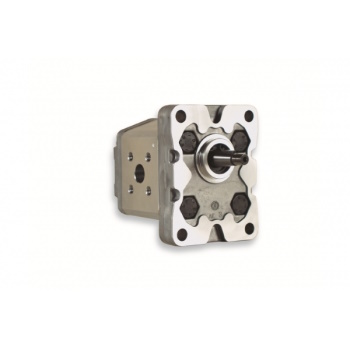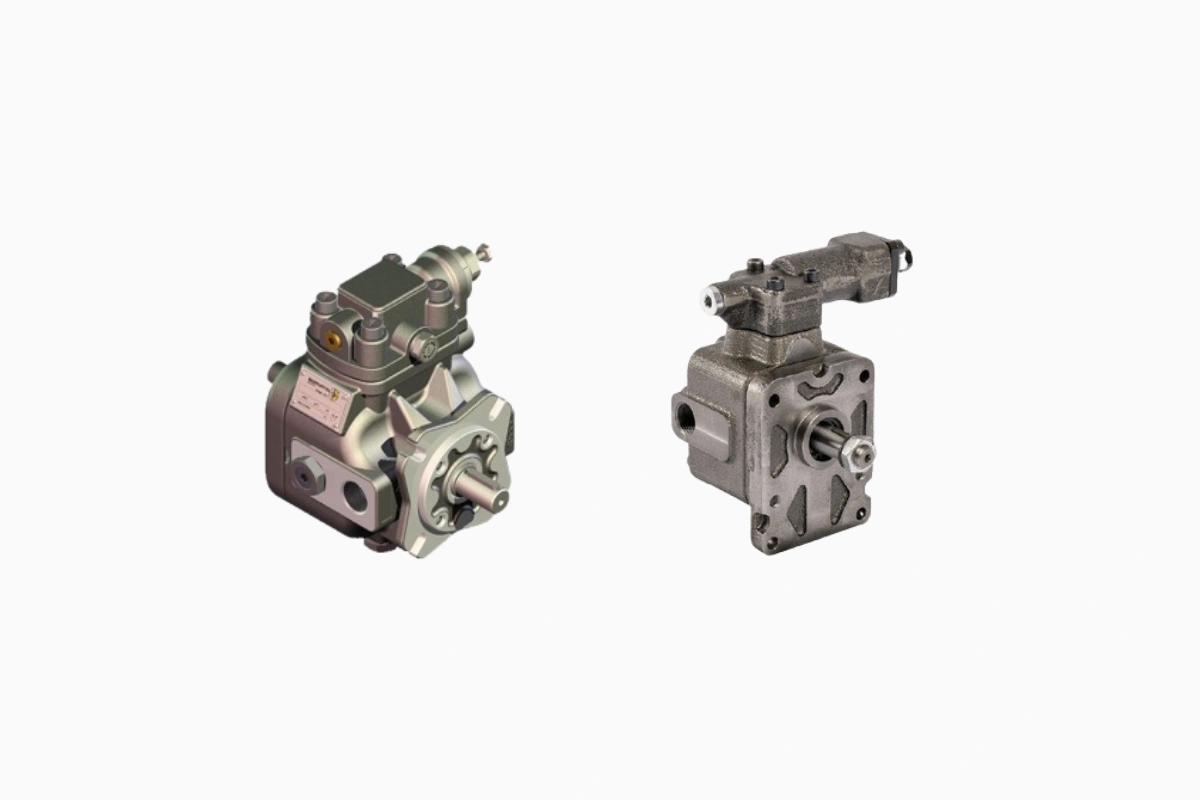The right hydraulic pump is essential to ensure the efficiency and durability of a system.
Hydraulic pumps are crucial devices in hydraulic systems, as they are responsible for the flow and pressure of the fluid within the circuit. But how do you choose the right hydraulic pump for your system?
In this article, we will explore the main factors to consider when selecting a hydraulic pump for a system, analyzing the available types and how to adapt them to the specific needs of your system.
Types of Hydraulic Pumps
Hydraulic pumps can be divided into various categories based on their operating principles and technical features. The main types of hydraulic pumps are:
- Gear Pumps: These are the simplest and most robust pumps. They operate by the movement of gears that push the fluid through the system. They are ideal for applications requiring constant flow rates and moderate pressures. Gear pumps are widely used in general industrial applications and heavy vehicles.
- Piston Pumps: These are more complex but offer greater efficiency and the ability to operate at high pressures. They are ideal for applications requiring variable flow and high performance, such as in heavy industrial and automotive sectors.
- Vane Pumps: These pumps use a rotor with vanes that slide within a cavity. They are more efficient than gear pumps and quieter than piston pumps. Vane pumps are used in applications requiring low power and good adaptability to variable flow rates.

For more details on the available models, visit the pumps and motors section of LubeTeam Hydraulic.
Factors to Consider When Choosing a Hydraulic Pump
The selection of a hydraulic pump depends on several technical factors that vary based on the specific needs of the system. Here are the key factors:
- Flow and Pressure: The pump must provide the necessary flow and pressure for the system to function properly. Flow indicates the amount of fluid that must be moved per unit of time (usually expressed in liters per minute or gallons per minute), while pressure indicates the force needed to push the fluid through the system (expressed in bar or psi). It is essential to calculate the required flow and operating pressure to select a pump with the right specifications.
- Type of Fluid: Mineral oil, synthetic oil, water, or other fluids influence the choice of pump. Some fluids are more viscous than others, requiring pumps with different handling capabilities. Additionally, the fluid may have specific requirements in terms of operating temperature and compatibility with pump materials.
- Efficiency and Energy Consumption: Hydraulic pumps consume energy to generate pressure and movement. Choosing an energy-efficient pump can reduce operating costs and improve system reliability. Piston pumps, for example, are generally more efficient than gear pumps but may also be more expensive.
Pump Sizing and Installation
Once the type of pump is selected, it is important to consider the correct sizing for the system. Incorrect sizing can lead to inefficiencies, premature wear of components, or even system failures. To correctly size a pump, it is necessary to consider the required flow, operating pressure, and fluid characteristics. At this stage, consulting an expert technician or the supplier can help ensure the right pump is selected.
Additionally, the pump installation must follow technical specifications to ensure safe and durable operation. It is essential that the pump is properly mounted to avoid excessive vibrations and that the system includes all necessary safety protections.

